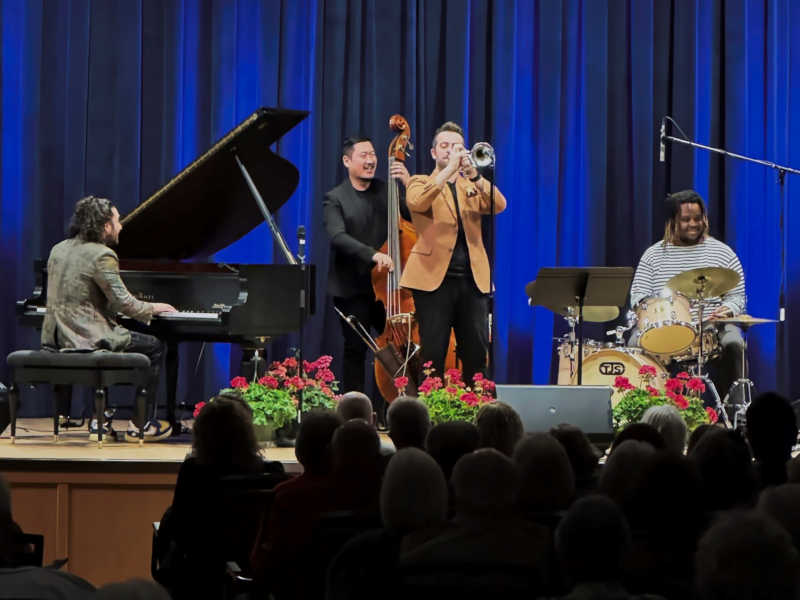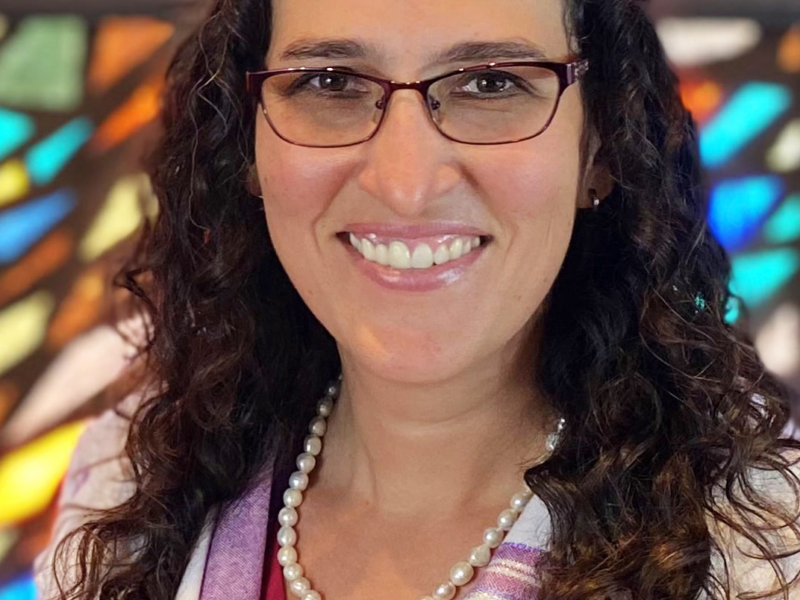New adjectives sum up Béla Fleck’s career better than “eclectic.” The 54-year-old banjo virtuoso has performed just about every kind of music you can imagine, with just about everybody in the business. In addition to bluegrass, Fleck plays classical, world fusion, jazz, klezmer, original compo- sitions and African music, gaining new fans every time he releases another recording. This month, Fleck ranges into new territory, as he presents an evening of solo banjo on May 15 at the Musical Instrument Museum in Phoenix.
Fleck has wanted to go solo for many years, but the demands of such a concert have been daunting. “It’s a new direction, a different kind of a high jump,” he acknowledges. “I’m developing ideas for it: some improvisation, some set pieces.” Fleck has often played one solo in concert, but a whole evening of solo music requires a higher level of self-confidence than Fleck felt he possessed until now. “Sometimes playing solo is the high point of the show for me; since I’ve been soloing on different shows, folks like (jazz keyboardist and composer) Chick Corea suggested I should do a solo show. I think it’s an experiment worth trying, and it should be part of what I do. At 54, I’m feeling confident enough to try it.”
Fleck sees jazz pianist Keith Jarrett’s improvised solo concerts as a model for his own gigs. “It was impressive to see him walk out on stage and create on the spot. To be very exposed and create something in front of an audience is something I’ve never done, so I think it’s something I should be doing. I want to get at a deeper expression and have freedom I don’t have in a group context. On some level I think it could be the best thing I know how to do.”
The May 15 concert launches a series of solo appearances for Fleck, and allows him to introduce audiences to the virtuosity and versatility of the banjo as a solo instrument. “The banjo hasn’t gotten a fair shake as a solo voice, certainly not by me,” he says. “I love playing solo; when I hear my instrument fill up a room, it turns me on and I get musically inspired. These concerts are the beginning of something I’ll be doing for the rest of my life.” Fleck, whose full name is Béla Anton Leoš Fleck, was born and raised in New York City. His father named him after classical composers Béla Bartók, Anton Webern and Leoš Janáček. “I’m lucky I wasn’t named Ludwig, which my older brother got stuck with,” comments Fleck wryly. He began playing guitar while in elementary school. Fleck switched to banjo at age 15 after falling in love with the sound of Earl Scruggs’ banjo on the theme song to the television show, “The Beverly Hillbillies.” “It was like sparks going off in my head,” he remembers. “At that time I was playing guitar because I hadn’t figured out what I really wanted to play. My grandfather saw a banjo at a garage sale in 1973, and he thought I might like it. When I visited him, I was so excited to see that banjo; it’s what I wanted all along.”
Before he finished high school, Fleck had joined his first bluegrass band, Wicker’s Creek, and at 19 he recorded his first album, on Rounder Records. Fleck continued playing bluegrass and jazz with a variety of musicians through the 1980s. Fleck grew up assimilated and says he doesn’t have “a strong Jewish aspect” to his identity. “We’re the lost generation,” he says of himself and his siblings. During his high school years at the LaGuardia School for Music and Art and the Performing Arts, Fleck met klezmer musician, multi-instrumentalist and composer Andy Statman, whom Fleck considers one of his musical heroes. “That’s the first time I heard klezmer and realized how beautiful it was. It’s some of the deepest music I’ve ever heard.”
That search for depth has inspired Fleck in his musical wanderings through bluegrass, jazz, African, Indian, world and classical music over the past 30 years. Today’s audiences are accustomed to the concept of the “crossover” musician, but when Fleck branched out of bluegrass, crossover artists were charting new territory. Or were they? Fleck isn’t so sure. “I think crossover has been going on all along,” he maintains. “The ’60s were a great example of that; the Beatles brought classical sounds into popular music and (sitar virtuoso) Ravi Shankar played at rock festivals. Growing up in the ’60s, I saw all those doors swing wide open; it seemed natural to me. Anything I heard that was intriguing I’d try to play, from an Irish jig to a Bach partita to Chick Corea’s jazz.” Fleck’s musical interests reflect Duke Ellington’s famous quote: “If it sounds good, it IS good.” As Fleck explains, “I love all deeply expressed music; I don’t care what idiom it is. There are people in every form of music who take it to the deepest level. If you hear something and you’re not digging it, you’re probably not hearing the best stuff out there.”




